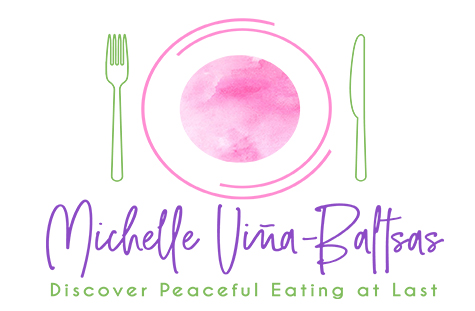One of the questions I often hear from my clients is, “Will the calorie counting ever end?”. Before I continue, I will say that if you were accustomed to counting “points” or macros or any other tallying (like the number of daily starches or fruits, etc.), this blog will help you too.
First, for ex-dieters, counting is a very common behavior, so please know that you’re not alone if you’re still doing this. Second, changing this behavior is definitely possible, but it will take time because it is an automatic mental habit.
Why is it important to change this behavior?
Changing this behavior is important because counting disconnects you from eating intuitively. Intuitive eating is about moving away from reliance on external cues to guide our food choices and instead relying on our body’s internal cues. When you’re counting, it’s very likely influencing your food choices based on the number of X (X=calories, points, macros, etc.) and that will prevent you from listening to your body’s internal cues. This is just another form of deprivation and likely still an attempt to control and/or manipulate your weight. Again, all normal and expected ex-dieting behavior, but not intuitive. Continuing with these behaviors will prolong your suffering and prevent you from healing your relationship with food.
How to stop it?
Simply willing yourself to stop the behavior isn’t enough to stop it. Like using willpower to stay on a diet, it may prevent you from eating _________ for a little while, but it’s not sustainable. The way to stop counting is to continue practicing intuitive eating.
What can you expect during this process?
As you begin to ease into intuitive eating, you’ll likely worry that you’re still counting. In fact, you may even be annoyed or irritated by the constant counting because you know that counting is a dieting tool and you’ve given up dieting! You may even feel shameful about this but there is no need to. Just because you’re now practicing intuitive eating, this doesn’t mean that you’re going to be able to give up old behaviors so quickly. This is a process that takes time, patience and copious amounts of self-compassion.
Manage your expectations by acknowledging that you’ll still make some choices based on this tallying. Take comfort in knowing that the more you start to rely on your body to gauge your eating, such as hunger, fullness, and satisfaction, the more you’ll see that the tallying begins to dissipate. Start to notice how different your body feels both physically and emotionally when you honor it by eating what you truly desire.
Next, you’ll probably still notice the tallying but you won’t make your food choices based on that information. Begin to notice how much more relaxed you’re starting to feel around food as you listen to your body more. Are foods that used to be off limits due to high/low counts no longer seem as intimidating to you now?
Lastly, continue to assess how you feel after you eat. Consider the following questions:
Are you feeling more satisfied with your food choices overall?
Are you feeling less distracted during the day because you’re nourishing your body with the amount and types of food that your body needs to function at its best?
Are you trusting that your body knows what it needs and that by listening to it, you will feel better?
If you’ve answered yes or mostly yes to these questions, my guess is that the tallying has likely become less important to you or has stopped entirely. If it hasn’t, keep flexing your intuitive eating muscles by continuing to tune-in and listen to your body. The stronger your intuitive eating practice gets, the weaker the tallying will be until it eventually drifts off entirely.
If you're tired of battling with your weight, fed up with the cycle of yo-yo dieting, and yearning to be free from your obsessive thinking about food and your body, schedule your complimentary Embrace Anti-Diet Living Connection Session.
We’ll get clear on where you are now, what you want instead, and what might be getting in the way of your success.
I’ll also share some powerful recommendations and resources to get you started on creating a peaceful relationship with your body and food.

